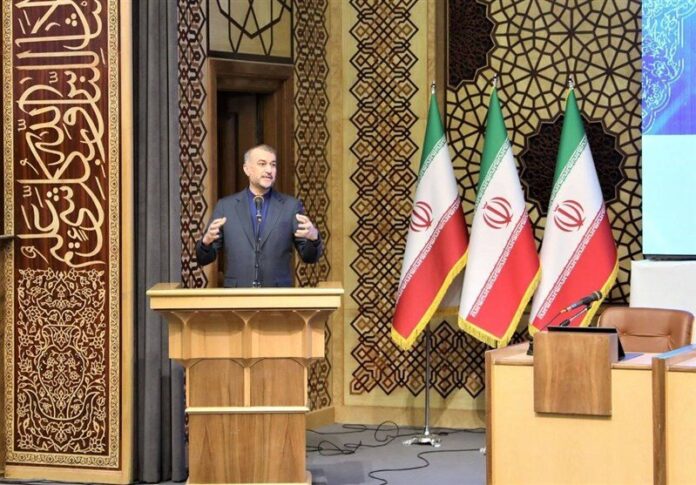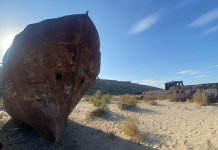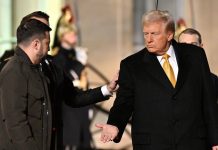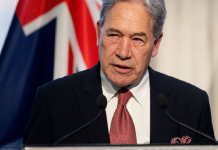TEHRAN: Iranian Foreign Minister Hossein Amir-Abdollahian said that Hamas informed Iran that it can continue the conflict with Israel in the besieged Gaza Strip for months.
He made the remarks at a conference of clerics and seminary teachers in the holy city of Qom on Thursday, saying that the Gaza war had lasted more than 80 days and that “the Zionist regime had gained nothing.”
He quoted Hamas commanders as saying that “only 14% of the resistance capacity had been affected so far.”
He also said that Hamas tunnels had expanded beyond the area of Gaza, and that drone production had not stopped for a single hour since Operation Al-Aqsa Storm on Oct. 7.
He added that Hamas had seized important security and military personnel of the Zionist regime on the first day of Operation Al-Aqsa Storm.
He praised the resistance’s increasing popularity, saying that Hamas had taken charge of both Gaza and the ongoing war.
He said that “after the Al-Aqsa Storm, more than 70% of the people of Gaza joined the fight.” He said that “after breaking the wall, all the Palestinian youth and people entered the arena and defended their land.”
He said that “the Zionist regime had changed its objective in Gaza several times, but had failed.”
He talked about the US full support for the Israeli attack on Gaza and Washington’s repeated assurances to Iran that it did not want the war to escalate, asking the Islamic Republic to help in preventing a war spill over.
He said that “they were given a firm answer and the establishment replied to them at the official level.”
He said that “America is lying when it claims it is not seeking to widen the war.” He said that if the Americans did not want to widen the war, they would not be sending their equipment and weapons to Israel day and night.
He said that “today, American weapons are arriving in Tel Aviv from all the bases in the region non-stop. Moreover, some equipment also comes directly from America to Cyprus and then goes to Tel Aviv from Cyprus.”
He said that the idea of using Iran’s relations with the resistance for post-war reconstruction in Gaza was also raised at the UN; however, he said, “we stated that the Palestinian people should be the ones to decide.”
He referred to resistance movements while talking about the emergence of new world powers.
He said that “the emerging powers do not only mean China’s economy. Today, resistance has become a power,” referring to anti-US groups in Palestine, Lebanon, Syria, Iraq and Yemen.
He also expressed his utmost admiration for the Yemenis and Hezbollah in Lebanon, commending their brave actions during the war.
He pointed out that “today, Yemen has established a new legal regime in the Red Sea” by intercepting and targeting Israeli ships and vessels heading for Israeli ports in Bab el-Mandeb.
He said that “today, the leaders of the resistance have achieved a high level of insight and awareness and have demonstrated this in the recent war.”
He highlighted “many steps taken by the Islamic Republic of Iran in forming the Axis of Resistance to ensure security in the region.”
He said that “today, there is no need for the Islamic Republic to do anything.”
He said that the developments were part of changing concepts and mechanisms in the world, where the US hegemony is on the decline.
He said that “one development is that the practice of American hegemonic power is weakening day by day. Today, a resistance group has defeated the army that considered itself the third military power in the world.”
He said that “today, in the White House, the question is raised as to why support for Israel is so high that Israel’s defeat is considered America’s defeat.”






